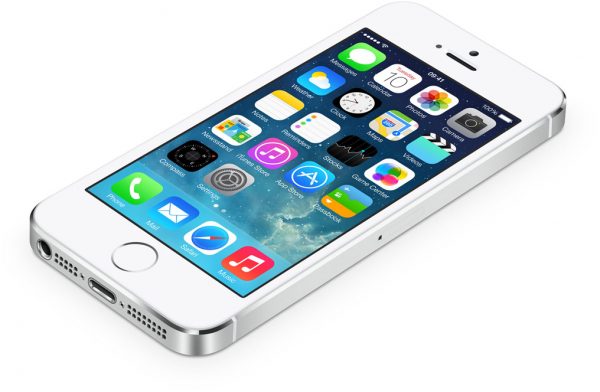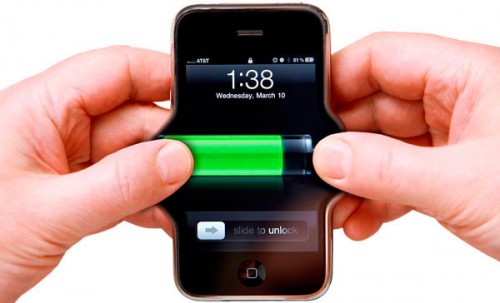Apple are great at marketing. Well, Steve Jobs was at least. Apple are also great innovators, although that is more debatable.
A few weeks ago I came across a video of the Steve Jobs introducing the iPhone. I found it quite comical how the audience gasped and clapped at some of the features; the idea that you could use your finger on a screen instead of a stylus, the ‘amazing’ elastic band scrolling effect, and by far the most impressive, the iPhone could handle the web like a computer, not a mobile phone. Steve Jobs even mentioned that Apple planned to make 3G phones in the future.
The fastest network the original iPhone was compatible with was EDGE, which at the time would download at speeds of up to 473.6 kbit/s; that’s about 2,214 times slower than today 4G 1Gbit/s speeds!
%CODEYOUTUBEIPHONEKEYNOTE%
Apple, Google and Yahoo! all working together on one device – I doubt that will ever happen again.
How far Apple has come since it launched the smartphone that changed the world in 2007.
iOS7
The original iPhone was unique. There was nothing like it and it was undoubtedly the best smartphone on the market at the time. iOS7 on the other hand is arguably just a cheap imitation of Android OS. That is the extreme view of course, I would also argue that Apple are only learning from Samsung, see what your competitor does well, then improve it, repackage it and sell it yourself.
 iOS 7 came with a few bugs and hiccups, but then most new software does so I am not criticising Apple for that. Aesthetically, childish icons, illegible fonts (due to poor colour schemes) and the motion sickness some people complain of because of the whizzy new interface, are all problems that are down to bad design.
iOS 7 came with a few bugs and hiccups, but then most new software does so I am not criticising Apple for that. Aesthetically, childish icons, illegible fonts (due to poor colour schemes) and the motion sickness some people complain of because of the whizzy new interface, are all problems that are down to bad design.
In terms of technical problems, the inability to downgrade to iOS6 and the battery issues many users of older devices are facing when they upgrade are also Apple’s fault. Whilst I say they are Apple’s fault, they almost certainly weren’t accidental. If you don’t let people to downgrade, you force them to use to your new OS.
Free Upgrades
Apple now offer free upgrades to the latest iOS which you could argue is good for owners of older iPhones, but not so good for Apple’s bottom line. However if you look at the tests, generally older phones perform better on their original operating system than they do on iOS7; for example the iPhone 4 loads faster on iOS 6 than it does when running iOS 7.
If you have an iPhone 4 running iOS 7 and your friend has an iPhone 5C or 5S and your phone runs like a dog but theirs flies, it kind of makes you want to buy the latest phone.
Free upgrades also give users the perception that sticking with Apple is a good idea, because Apple look after them. Additionally having access to iOS7 will mean more users are familiar with the interface, so buying a new phone isn’t such as big a jump.
Bad Now, Better Later
Here’s a thought, why have Apple failed to address the battery problem that plagues all smartphones? Old mobiles used to last for weeks between charges. I still own a Nokia 3510 which was released 12 years ago, yet if I fully charge it and leave it (switched on) it will last for a good few weeks – my S4 Mini can do about 60 hours tops. I believe many smartphone manufacturers are holding things in the bank for future. Better batteries are available, but it is more profitable to release better features gradually than to give consumers one fantastic upgrade every 3 to 4 years.
 Maybe Apple want iOS7 to look a little childish and have a few faults, so that when the next iPhone (or the one after that) comes out with a brand new OS, it looks so much better.
Maybe Apple want iOS7 to look a little childish and have a few faults, so that when the next iPhone (or the one after that) comes out with a brand new OS, it looks so much better.
Time
When anything first comes out there is a lot of hype about it, sometimes good, sometimes bad, but often a mix of both. Those who ‘love’ the iPhone (or those who have been sucked in by Apple’s marketing) will stick with the phone for a long time to come. Those who are more critical won’t stop viewing things differently either. At the end of the day Apple is just a bunch of people trying to make money for another bunch of people – just like almost every other company.